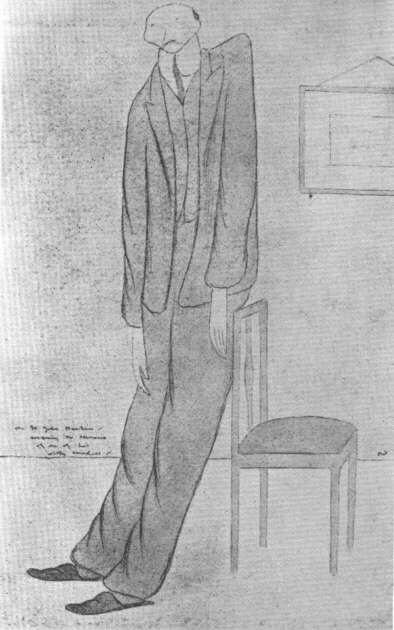| A Pleasant Evening |

Together with John Galsworthy and Harley Granville Barker, St. John Hankin can be regarded as one of the major representatives of the Edwardian new drama. These three authors had a common goal, that of reforming English drama and reshaping the theatrical landscape. They intended to replace popular plays and the long-run system of the commercial theatre with new dramas of superior literary quality performed in the alternative theatre, ultimately in a subsidized national theatre.
The first publications relevant for Hankin's later career as a dramatist were his approximately seventy unsigned theatre reviews for The Times (1897-1899) as well as numerous satirical contributions to Punch (1898-1903), among them dramatizations of all kinds of works of literature.
Subsequently, Hankin published several essays criticizing the contemporaneous theatre, its practioners and its audiences as well as proposing the foundation of an endowed theatre:
"The Censorship of Plays". Academy 74 (29 February 1908): 514-515
"Puritanism and the English Stage". Fortnightly Review 86 (1 December 1906): 1055-1064
"How to Run an Art Theatre for London". Fortnightly Review 88 (1 November 1907): 814-818
"The Need for an Endowed Theatre in London". Fortnightly Review (1 December 1908): 1038-1047.
The years before the Great War saw a number of repertory experiments in London and the establishment of some repertory theatres in the provinces. The - private - institution which championed and supported these developments was the Stage Society, in whose activities Hankin was involved for many years. As regards the staging of his work, Hankin was a genuine new dramatist, as all his full-length plays were first performed either by the Stage Society or as part of Granville Barker's repertory venture at the Court Theatre:
The Two Mr. Wetherbys, Imperial Theatre (Stage Society), 15 March 1903
The Return of the Prodigal, Court Theatre, 26 September 1905
The Charity that Began at Home, Court Theatre, 23 October 1906
The Cassilis Engagement, Imperial Theatre (Stage Society), 10 February 1907
The Last of the De Mullins, Haymarket Theatre (Stage Society), 6 December 1908.
St. John Hankin's plays, all of them comedies, are governed by what may be called his aesthetics of negativity. The plot does not progress towards a conventional happy ending, typical of most comedies, but towards the dissolution of familial ties and love relationships, towards a closure marked by disharmony. Empathetic reception patterns are superseded by the primacy of reason over emotion. One may see Hankin as a successor of Oscar Wilde, who writes Edwardian comedies of manners in which prevailing norms are deconstructed without, however, offering any new values. While the comedies feature criticism of the traditional order, the endings confirm rather than subvert the fossilized structures.  In the preface to Three Plays with Happy Endings (including The Return of the Prodigal, The Charity that Began at Home and The Cassilis Engagement) entitled "A Note on Happy Endings", the playwright provides a tongue-in-cheek exposition of his variety of the happy ending (London: French, 1907). This preface was reprinted in the three volume edition of his works:
In the preface to Three Plays with Happy Endings (including The Return of the Prodigal, The Charity that Began at Home and The Cassilis Engagement) entitled "A Note on Happy Endings", the playwright provides a tongue-in-cheek exposition of his variety of the happy ending (London: French, 1907). This preface was reprinted in the three volume edition of his works:
The Dramatic Works of St. John Hankin, ed. John Drinkwater, 3 vols., London: M. Secker, 1912, III, 119-129).
The subtitle of the first published monograph on this neglected dramatist, St. John Hankin: Edwardian Mephistopheles London: Associated University Presses, 1979) bespeaks the nature of Hankin's dramatic oeuvre.
Suggested further reading:
Jean Chothia: English Drama of the Early Modern Period 1890-1940, London: Longman, 1996.
Jan McDonald: The 'New Drama' 1900-1914, London: Macmillan, 1986.
Rudolf Weiss: Der Januskopf der traditionellen Moderne: Die Dramenästhetik St. John Hankins und John Galsworthys, CDE Studies 9, Trier: Wissenschaftlicher Verlag Trier, 2002.